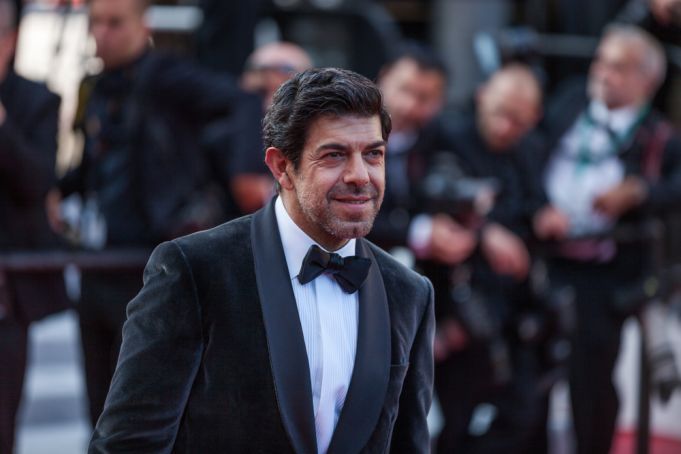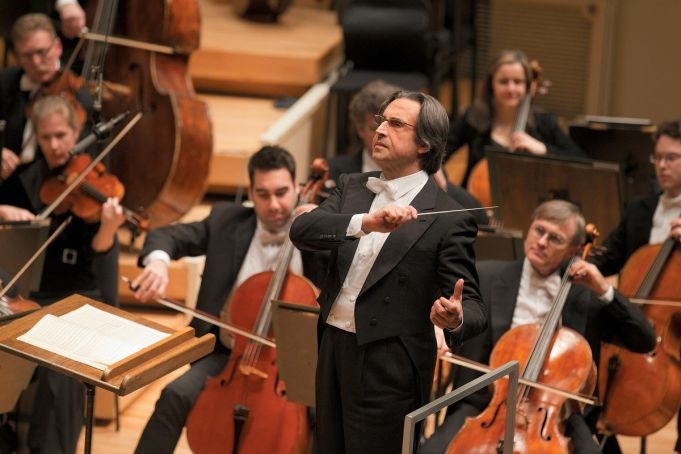Covid-19 crushes Italy's culture
Italy's new coronavirus restrictions come as a devastating blow to the cultural sector which was just getting back on its feet after a nightmare year.
By Andy Devane
The Italian government's recent order to close all theatres, cinemas and concert halls due to the coronavirus pandemic sent shock waves through the nation's already embattled cultural sector.
Still reeling from the spring lockdown, the performing arts had begun to limp forward as summer turned to autumn, hampered severely by social distancing measures but nevertheless open for business.
This new cultural shutdown, part of a raft of measures announced by premier Giuseppe Conte on 25 October, was met with immediate calls for the government to spare an exhausted sector that has already been brought to its knees.
The decision, which affects all those in the performing arts and cinema, will remain in effect until at least 24 November, and possibly much longer.
Curtain comes down on culture
The order has led to the curtain coming down at the great opera houses in Rome and Milan, as well as resulting in the cancellation of classical concerts, plays and avant-garde theatre festivals. When the news first broke, the Teatro dei Colli in Padua staged a mock “funeral of the theatre, killed by the decree.”
This year's Rome Film Fest, which concluded on the night of Conte's announcement, made it by the skin of its teeth.
However there has been a major backlash from the world of show business. The government has been bombarded with requests to change its mind, signed by Italian actors, directors, performers, theatre workers, cinema owners, producers and playwrights.

The national union of audiovisual, theatre and live entertainment workers (Unita) has called for theatres and cinemas to be reopened as soon as possible, stating: "We are not free time. We are work and much more."
Roman actor Pierfrancesco Favino shared this message on social media, adding: “Culture is a basic common good like water; the theatres, the libraries, the cinemas are like many aqueducts.”
Avalanche of appeals
Italy's minister of culture and tourism Dario Franceschini has faced an avalanche of criticism and appeals, including a petition by musical association Vissi d'Arte which has reached more than 100,000 signatures.
Franceschini said the decision had been “painful” but refused to backtrack, saying: "Perhaps those who criticise have not understood the gravity of the situation we are experiencing.”
Underlining his commitment "to make the closure as short as possible,” Franceschini said that the goal was to reduce people moving around, and that the move was not a reflection on theatres and cinemas which have respected the rules.
"Right now the priority is to safeguard people's lives," said the minister, adding that museums remain open because visitors enter in a staggered manner and do not congregate.
Summer of challenges
Earlier this summer the Teatro dell'Opera di Roma became Europe's first opera house to resume productions when it moved to an open-air stage in the Circus Maximus, achieving critical acclaim while adhering to the strictest of covid-19 protocols.
In October the opera house welcomed spectators back to its Teatro Costanzi base to see five performances of a magnificent new production of Mozart's Zaide, directed by Graham Vick, but was then forced to cancel the re-run of Sofia Coppola's version of Verdi's La Traviata in November.
The recent reprogramming challenges were also met admirably by the Accademia Nazionale di S. Cecilia which moved its summer symphonic season outdoors, with socially-distanced guests enjoying the music of Beethoven in the Cavea arena at the Auditorium Parco della Musica.
Now that it finds itself back in lockdown territory, S. Cecilia has responded by taking to the airwaves. In what may be a sign of things to come, a concert by cellist Luigi Piovano and the S. Cecilia choir will be held without an audience and broadcast live on Rai Radio 3 at 20.30 on 29 October. It will also be interesting to see if the Maurizio Pollini concert, rescheduled from April, then from the end of September will finally go ahead on 30 November.
Social media
Both Rome's opera theatre and S. Cecilia made the very most of social media during the lockdown from March-May so they will probably do the same all over again. This is no substitute for ticket sales, unless they can find a way of paying a nominal fee for the repeat performances, but their traditional audiences and new ones will be grateful.
Romaeuropa, the capital's multidisciplinary arts festival, was stopped in its tracks as well. Many doubted that the annual festival would take place at all this year but on 18 September, against all the odds, it launched its 35th edition. Its cutting-edge programme of contemporary dance, theatre, art, music and technology adapted to the covid-19 protocols, not without difficulty, presenting 44 live productions to 12,848 spectators until its premature end on 25 October.
The festival said it was "grateful" to have got as far as it did but was "saddened" for the shows that it will not be able to stage in front of a live audience. It too will start to move shows online.
Light of hope
The chamber of Italian opera foundations (ANFOL) has taken the news on the chin. It has also proposed live-streaming productions, in the absence of the public, to be shared via the social media channels of all 12 Italian opera foundations. Announcing the plan, titled Open Despite Everything, organisers said: "We want to help keep the light of hope alight to help everyone in this difficult time."
The upcoming Rossini Opera Festival in Pesaro, originally scheduled from 1-29 November, has adapted its programme in light of the new decree. The productions, rescheduled to begin on 14 November, will now be performed live, without an audience, and streamed for free.
In a surprise move, Italian news agency ANSA has offered to make its digital platforms available to Italian theatres and cultural institutions to host shows and events until 25 November. "It seemed right to us" – said the agency's director Luigi Contu – "to support the efforts of those who in this dark period of the country's cultural life do not intend to stop their activity." Franceschini thanked ANSA and appealed to the media to give more visibility to cultural events.
Heartfelt appeal
However it appears that a sizeable majority in the world of cinema, entertainment and the performing arts favour an outright lifting of the measures. Among the most senior figures to lend his voice to this call is Riccardo Muti, the celebrated conductor of opera and classical music, who penned a “heartfelt appeal” to Conte calling on the prime minister to reverse his decision.
In an open letter published in Italian newspaper of record Corriere della Sera, Muti decried the definition of theatrical and musical activity as “superfluous” by some government representatives, in what he said was “an expression of ignorance, showing a lack of culture and sensitivity.”

Muti claimed that the shutdown “does not take into account the sacrifice and suffering of thousands of artists and workers from all sectors of the performing arts who are insulted by this decision and are left fearful for their futures.”
Muti also pointed out that theatres are managed by people who are “well aware” of the anti-covid regulations which they have “always respected meticulously.”
Painful decision
Conte replied to Muti with a letter, also published in the Corriere, stating that the government was forced to make the “painful decision,” with the primary aim of “regaining control of the epidemiological curve and preventing its continued rise from compromising the efficiency of our health system.”
Stating that it was “not a decision we took lightly,” Conte acknowledged the “enormous difficulties” suffered by those employed in arts and entertainment. However he assured Muti that the government “certainly does not intend to give up on beauty, culture, music, art, cinema and theatre,” without which “our spiritual dimension could not survive.”
The premier ended his letter by insisting that the government is working towards an “effective relaunch” of the cultural sector “as soon as possible.”
Twist of fate
In an unfortunate twist of fate, and despite repeated reassurances of the safety of theatres and cinemas, 21 performers at La Scala in Milan have tested positive for covid-19 since Conte announced the new restrictions. Originally there were two singers infected with the virus, including tenor Francesco Meli, however this has spread to 18 members of the chorus and three woodwind players in the orchestra, according to a statement released by La Scala on 28 October.
On the same day, Italian media reported that 12 positive cases were registered at the S. Carlo opera house in Naples, involving management, orchestra, chorus and dancers.
Stimulus package
The news coincided with the government unveiling a €5.4 billion stimulus package for those affected by the decree, which also shuts bars and restaurants at 18.00 and closes gyms and swimming pools completely.
The package includes tax breaks, grants and additional funds for temporary lay-off schemes, with more than €1 billion going to culture and tourism. "The aid will be immediate to compensate those who have suffered the consequences of a sudden closure as a result of the last decree,” said Franceschini.
Cold comfort
And while the funding has been welcomed, it is cold comfort to those whose livelihoods and lives are intertwined in a sector whose future has never been so uncertain. They have been left wondering when the spotlights and projectors will be switched back on, when the audience will revel once more in the magic of stage and screen.
It also remains to be seen if the government's injection of funds will be enough to quell a planned nationwide protest on the morning of 30 October. Trade unions representing people employed in the entertainment sector are organising demonstrations to be held simultaneously in around 20 Italian cities over what they see as the “death” of Italy's culture.
Promising to help the sector through the emergency as well as in the restart, Franceschini said he believes there will be “a very strong demand for culture” when we eventually come out on the other side.
"At the end of this terrible experience” – he said – “there will be a great desire to live.”
Cover image: Teatro dell'Opera di Roma


















